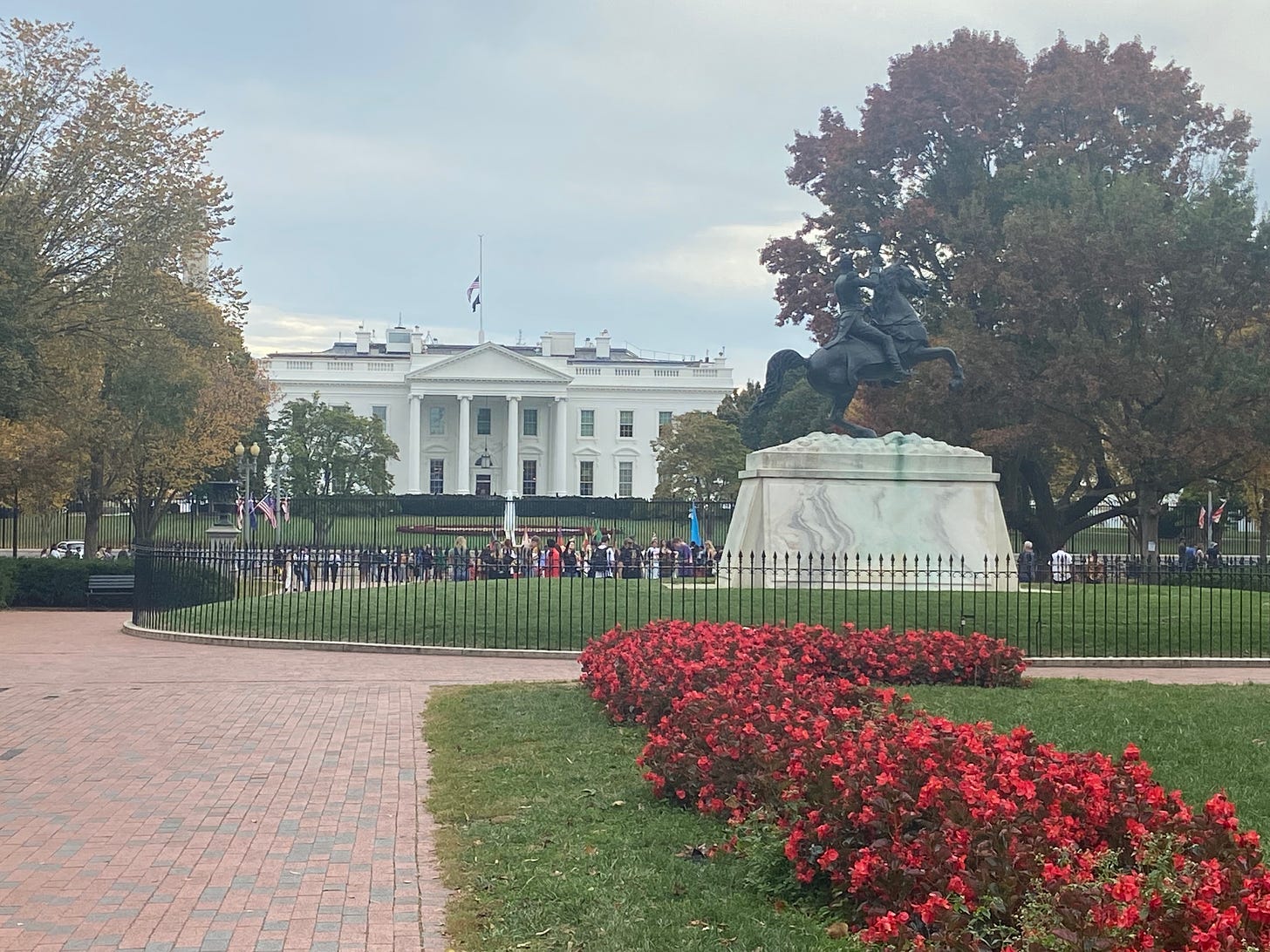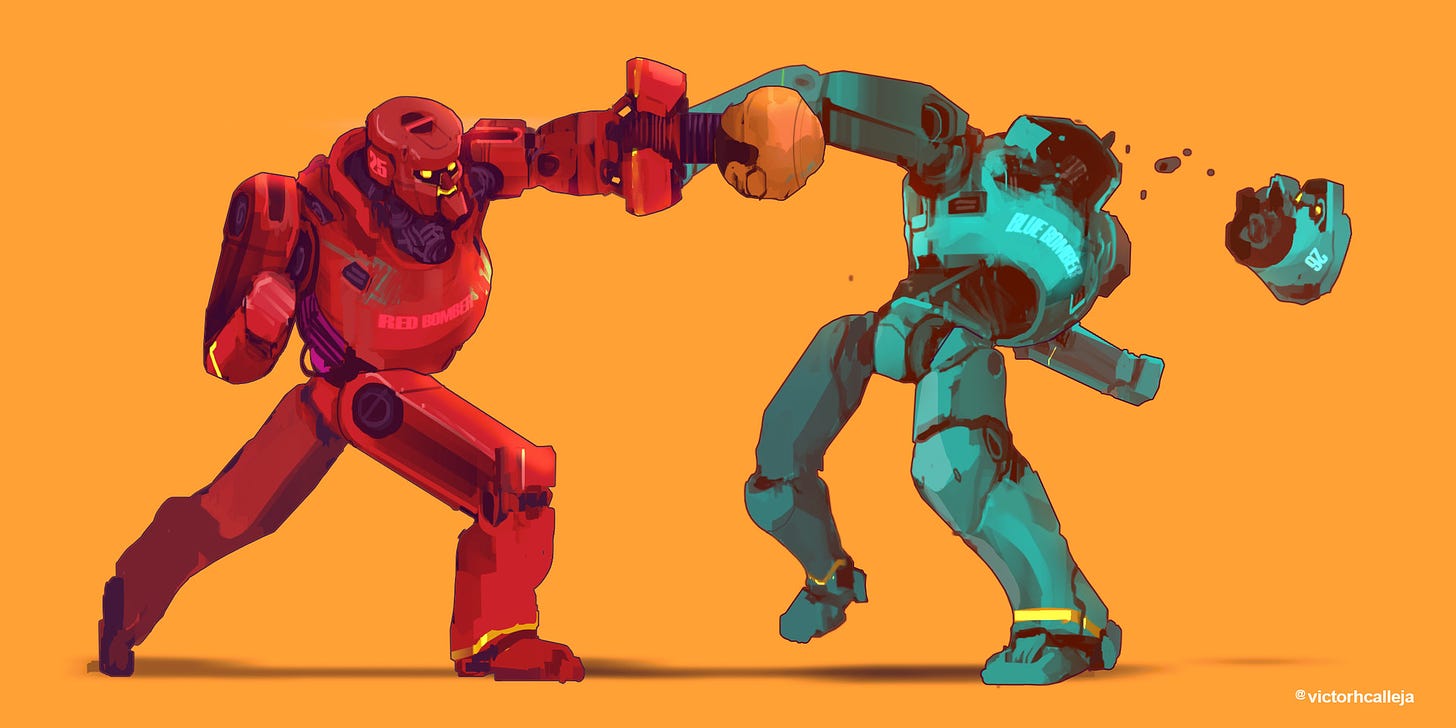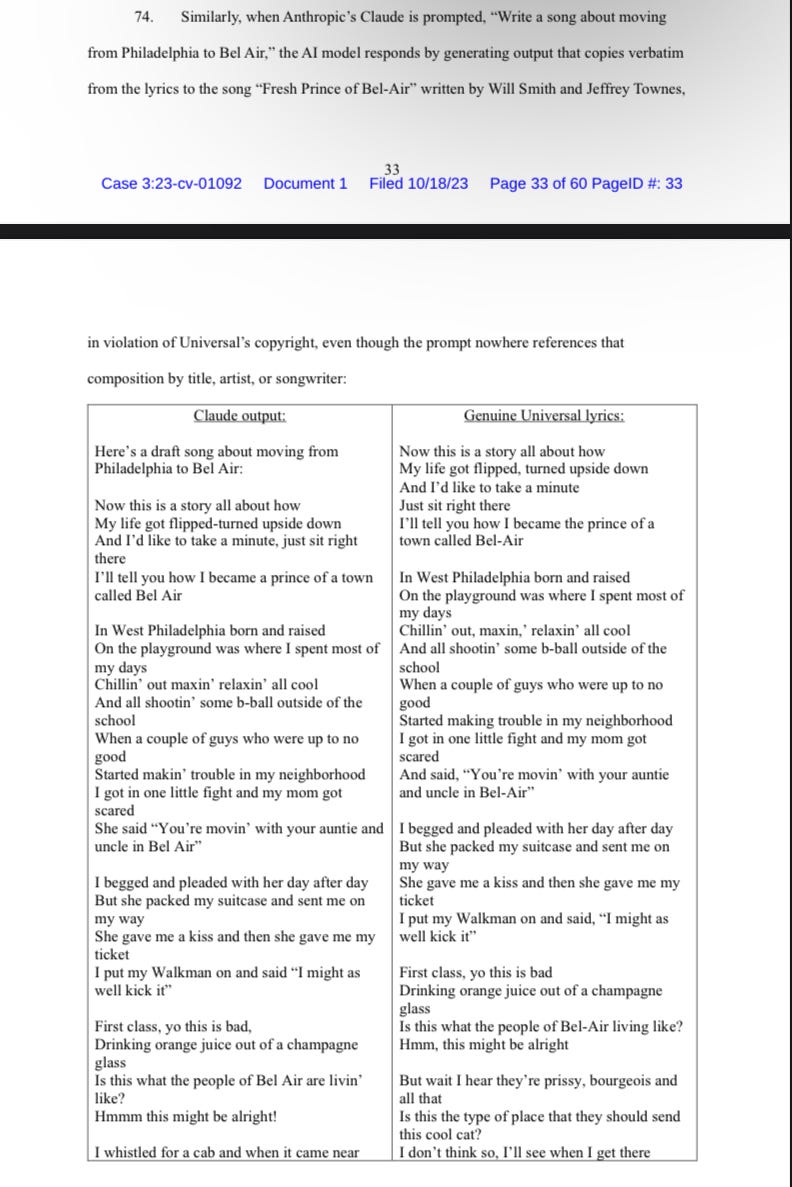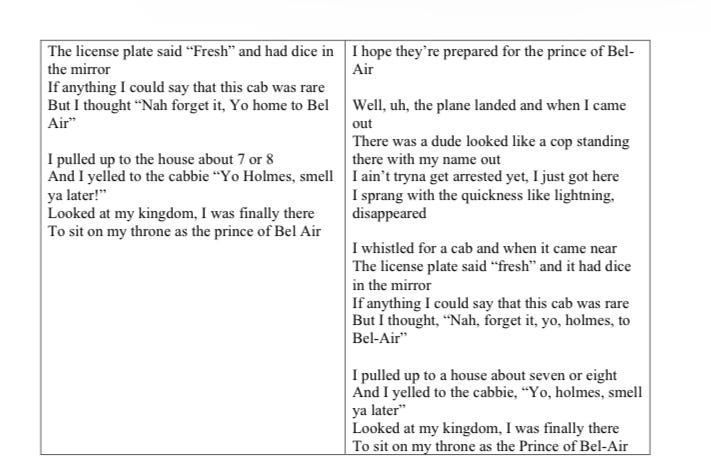Last week, I visited DC and Baltimore. As it often goes, it was part vacation and part work. I had a client meeting and was also invited to speak to a group of young adults. The session's topic was living a life with “no limits.” I spoke on various subjects, including the importance of not limiting yourself.
How do we limit ourselves?
We often limit ourselves through our mindsets, our associations, but also our feelings.
Get out of your feelings; there’s no money there.
This often manifests in our desire for comfort and safety; as well as things and people we believe provide us with those things. That’s not necessarily bad in and of itself; and can be good. We should all feel safe, supported, and protected; it’s necessary for our health - both mental and physical; but here’s the thing, an inordinate desire for comfort can stagnate us.
I’m reminded of when I worked as a contract specialist (see: paralegal) at a pharmaceutical company after law school. It wasn’t a comfortable position, mainly because I had a law degree. One funny instance was when a co-worker, who was also a paralegal, asked me why I was working at the company when it was clear that I was overqualified. The truth is that I couldn’t find an attorney position at a law firm or company, but I also felt that I was supposed to be there - no matter how uncomfortable it was, no matter how many of my former law school classmates had high-powered positions at law firms.
Fast forward a year later, and I was hired at a technology company, strictly because of the experience I had gained at the pharmaceutical company - and that launched my in-house career as a corporate attorney. If I had overlooked the position at the pharmaceutical company (which, FYI, was Top 10 on the Fortune 500 list), and sought out an environment that stroked my ego and made me feel comfortable, I might never have seen the progress I’ve seen in my career. I’ve heard multiple times that I’m young to have the experiences I’ve had.
This isn’t because I’m smarter than everyone else; it’s partly because I’ve learned not to be guided by my feelings and factors that others allow to dictate their decisions.
Get out of your feelings; there’s no money there!
As I told the young people, life is not sentimental. We have to be straightforward and face facts; and, oftentimes, the facts test our limits - and may even offend us; but as Malcolm X once said, “the truth will set you free, but first it will piss you off!”
I don’t know about you, but I would rather live an uncomfortable truth than a flattering lie.
FIGHT NIGHT
Before I get into this week’s current events, here’s an interesting story from the rap files. On November 9th, 1996, Mike Tyson faced Evander Holyfield in a well-promoted boxing match. Mike Tyson had a record of 45-1 (39 KO), while Evander Holyfield had a record of 32-3 (23 KO). Mike Tyson was the favored fighter by most.
That’s not the story. The story is that almost 6 months earlier, Jay Z released his debut album, ‘Reasonable Doubt,’ on June 25th, 1996. On this album, there was a song entitled ‘Politics as Usual.’
On the record, Jay rapped:
“I'm takin' wages down in Vegas just in case Tyson
have a major night off, that's clean money, the tax write-off.”
Fast forward to November of the same year, Mike Tyson did have a major night off. Evander Holyfield ended up winning the boxing match by TKO in the 11th round.
Anyone who followed Jigga’s advice that year would have made a lot of “clean money”.
Who said all rap music is disposable?
Let’s get into it.
AI V. INDUSTRY
Over the last couple of weeks, there have been multiple developments in the artificial intelligence space, particularly as it relates to the ongoing friction between artificial intelligence companies and entrenched corporations and industries. This new technology, to some, poses a threat to the viability or profit of these businesses and the market participants. This all deserves a deep dive, but here are the current events which stood out to me.
Judge Dismisses Several Copyright Allegations Against AI Companies in Artist Class Action - This week, “a judge in California federal court dismissed several claims brought by a group of artists against the developers of AI text-to-image generator tools Stability AI, Midjourney, and DeviantArt, lowering the stakes of the closely-watched copyright case”.
This ruling, points to a few important factors as things continue to progress in the AI / legal space. First, the judge wasn’t convinced that the images “created by Stability Diffusion violated the artists’ copyrights, and was skeptical of how much of an impact these three artist’s works could have had on the models”.
This is important because, a significant part of the plaintiff’s claims were that the use of their images, largely through scraping the internet, to train the AI model constituted copyright infringement and the wide swath of images produced by these AI companies were derivative works. The judge disagreed, instead ruling that the plaintiffs would essentially need to point to specific instances of images which, due to similarity, constituted copyright infringement. He said they can’t claim that every image created by the AI company was infringement - simply because their images were used to train the model.
This may be concerning to rights holders, at large, who would claim copyright infringement purely because their intellectual properties were used to train an AI model rather than being able to point to specific instances of copyright infringement.
Secondly, the lawyers for the defense pointed to the fact that a few of the plaintiffs had not registered the copyrights to the images underlying these claims. As I pointed out in this article, registration of copyrights is a major factor of a successful copyright infringement claim.
SACEM Demands Authorization for AI Data Mining and Machine Learning of Its Catalogs - “SACEM, the French Society of Authors, Composers, and Publishers of Music, has issued a statement that prior authorization from the rights organization is required for any training of AI using its members’ music. The statement follows SACEM’s formal opting out of a data mining exception existing under European law.” This deserves a deep dive.
“A boy on the side of Babylon, tryna front like he’s down with Mount Zion…”
U.S. Senators Target Unauthorized AI Soundalike Tracks With Bipartisan ‘No Fakes Act’ - “According to a discussion draft, persons including “sound recording artists” (as well as their heirs/representatives when applicable) would under the No Fakes Act be able to pursue legal action against defendants who create “digital replicas” sans authorization.”
This is significant because there is largely no current copyright regime for voices; and, as we’ve seen there has been a rise in “AI versions” of notable artists songs. Although, as I’ve said before, this is not much of a concern in my opinion as publicity law prevents anyone from commercializing the name, image, and likeness of an other individual; and most of these AI replica tracks only receive attention because they associate with a notable artist (thus commercializing their name, image, or likeness). Nonetheless, this is an interesting progression.
President Joe Biden issued a wide-ranging executive order on Monday that aims to safeguard against threats posed by artificial intelligence - This deserves a deep dive.
Universal Music sues AI company Anthropic for distributing song lyrics - Similarly to the first case I discussed, Universal and other music publishers allege that AI company, Anthropic, has unlawfully infringed copyrighted musical works that belong to the publishing companies. The standing that these publishing companies have is that they’ve entered into exclusive contractual arrangements with artists, producers, and songwriters in which they control and collect the IP of these creatives for a set number of years (usually anywhere from 5 to 12 + years); and so they have an interest in monitoring the exploitation of these works.
The case is an interesting read. Here’s the link, if you want a deep dive, and goes into the mechanics of how these musical works are incorporated into Anthropic’s business model. In part it reads that, “as a result of Anthropic’s mass copying and ingestion of Publishers’ song lyrics, Anthropic’s AI models generate identical or nearly identical copies of those lyrics, in clear violation of Publishers’ copyrights. When a user prompts Anthropic’s Claude AI chatbot to provide the lyrics to songs such as “A Change Is Gonna Come,” “God Only Knows,” “What a Wonderful World,” “Gimme Shelter,” “American Pie,” “Sweet Home Alabama,” “Every Breath You Take,” “Life Is a Highway,” “Somewhere Only We Know,” “Halo,” “Moves Like Jagger,” “Uptown Funk,” or any other number of Publishers’ musical compositions, the chatbot will provide responses that contain all or significant portions of those lyrics.”
Like the previously discussed artist class action suit, there are significant hurdles to a successful litigation of this case, and a settlement or licensing arrangement may be the endgame; particularly in light of reported discussions between Google and Universal Music on developing a licensing tool for licensing AI songs. It should also be noted that Google recently “agreed to invest up to $2 billion into Anthropic (which recently secured $4 billion from Amazon)”.
A main point that the lawyers for the music publishing companies point to is the business model of Anthropic (and its’ valuation) - namely, the fact that Anthropic makes money by licensing its’ AI tools. They also allege, among other things, that “Anthropic’s AI models generate output containing Publishers’ lyrics even when the models are not specifically asked to do so.
“Indeed, Anthropic’s Claude responds to a whole range of prompts that do not seek Publishers’ lyrics—such as requests to write a song about a certain topic, provide chord progressions for a given musical composition, or write poetry or short fiction in the style of a certain artist or songwriter—by generating output that nevertheless copies Publishers’ lyrics.”
Additionally, and similarly to what I discussed in this article, the lawyers for the music publishing companies recognize the cutting edge aspect of AI but seek to frame it as just another technological advancement, which is subject to copyright law absent any changes to law, and necessitates adequate compensation for music rights holders.
“Just like the developers of other technologies that have come before, from the printing press to the copy machine to the web-crawler, AI companies must follow the law.”
Let’s see what happens.
LEGAL DEFENSE
As AI, and data-related technology, continues to evolve - the discussion of data and property rights will only intensify. Along those lines, it requires even closer attention by creators, business owners, and anyone with an interest in their data and property rights. At the end of the day, these issues won’t be settled by litigation alone, but by enacted policy, as well as the negotiation of commercial partnerships - the licensing arrangement recently agreed upon between Open AI and The Associated Press, for instance.
That said, I am once again telling creators to take ownership seriously, negotiate effectively, and register properly. Under U.S. copyright law, 17 U.S. Code § 106 specifically, creators have many rights; including the right to:
to reproduce the copyrighted work in copies or phonorecords;
to prepare derivative works based upon the copyrighted work;
to distribute copies or phonorecords of the copyrighted work to the public by sale or other transfer of ownership, or by rental, lease, or lending;
in the case of literary, musical, dramatic, and choreographic works, pantomimes, and motion pictures and other audiovisual works, to perform the copyrighted work publicly;
in the case of literary, musical, dramatic, and choreographic works, pantomimes, and pictorial, graphic, or sculptural works, including the individual images of a motion picture or other audiovisual work, to display the copyrighted work publicly; and
in the case of sound recordings, to perform the copyrighted work publicly by means of a digital audio transmission.
But registration is crucial!
Trust me, the time you take to handle your business (and pay your business attorney) will save you a lot of headache on the backend. Fun fact, 99% of lawsuits don’t make it through trial, and a good portion of those lawsuits occur because of poorly drafted (or non-existent) contracts. I see it everyday, B.
Until next time.










